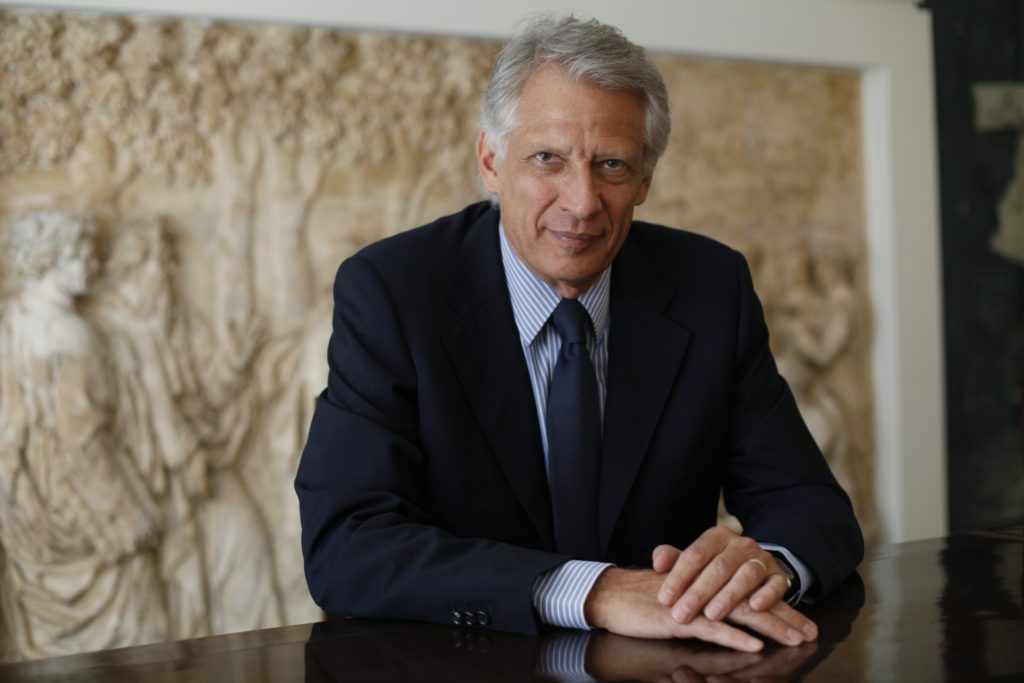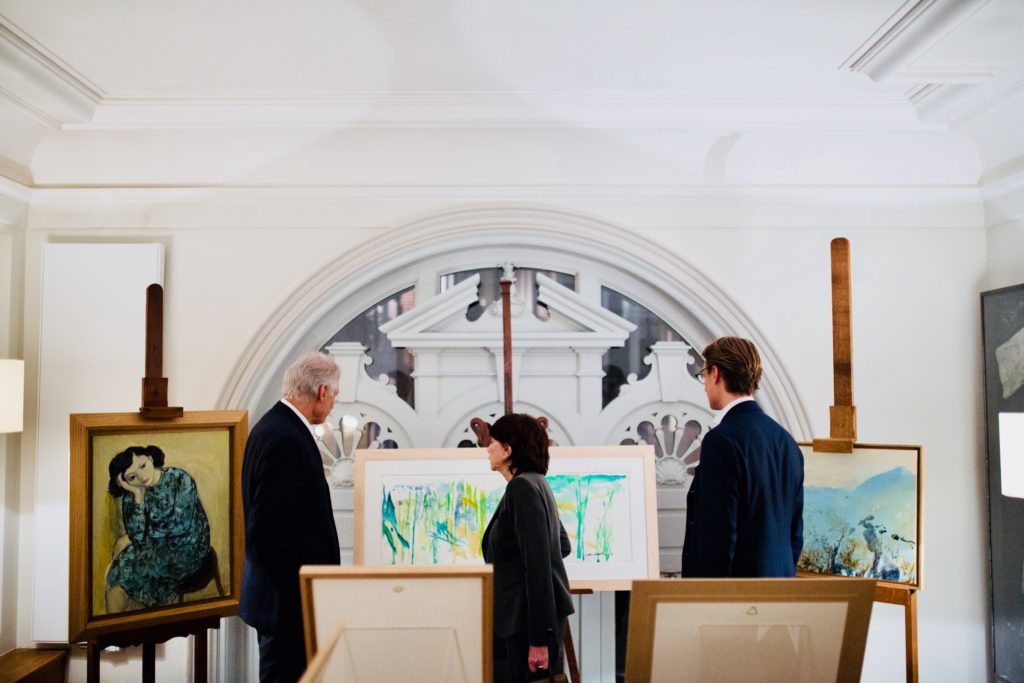Galleries
Former French Prime Minister Dominique de Villepin Is Opening an Art Gallery With His Son in Hong Kong
Arthur and Dominique de Villepin plan to open Villepin Gallery in March.

Arthur and Dominique de Villepin plan to open Villepin Gallery in March.

Naomi Rea

France’s former prime minister Dominique de Villepin is launching an art gallery with his son, Arthur, in Hong Kong next year.
While it seems like an odd move for a former politician, who was the French prime minister between 2005 and 2007 under the presidency of Jacques Chirac, de Villepin has always had a strong cultural interest. During his tenure as prime minister, he conceived the country’s first triennial and has been on several museum boards in Europe and the Middle East.
“Art and culture have always been key incentives in my diplomatic, political, and personal life,” Dominique de Villepin tells Artnet News. “During my time as a diplomat, I met with artists from across the globe to better understand the world we live in, assert art’s social function, and demonstrate the power of art to build bridges between cultures and change lives. This is even more important in a fractured world facing so many difficult challenges.”
The former politician has been building an art collection for the past three decades with a strong focus on artists who engage with social histories, and the new gallery he is building with his son—who has lived in Hong Kong for the past 10 years—will reflect that.

Arthur and Dominique de Villepin with Françoise Marquet in an exhibition of Zao Wou-Ki’s work, courtesy of Villepin Gallery.
Villepin Gallery will occupy nearly 3,000 square feet of a three-story building located at 53-55 Hollywood Road in central Hong Kong. The inaugural exhibition, which opens on March 13, just ahead of Art Basel Hong Kong, will show works by the late Chinese-French painter Zao Wou-Ki, who was close friends with the family. It will be titled “Friendship & Reconciliation” and will include rare paintings spanning the 1940s to the early 2000s, as well as a selection of Chinese inks, watercolors, and lithographs.
It is a surprising time to open a new business in Hong Kong, a city currently embroiled in political protest. But the gallery’s founders say they are deeply invested in the cultural scene of Hong Kong, and convinced that there is never a bad time to promote art.
“Growing up with a father involved in politics and diplomacy, I quickly became aware of the social and political power of art—for art and artists to build bridges across cultures and geographies,” says Arthur de Villepin, who will oversee gallery operations day-to-day while his father steers strategy from Paris. “Art also has the power to heal. Hong Kong is a city with a unique history—it’s robust and has a creative energy that will never go away. We hope that Villepin will be able to add to that.”
The father-son duo emphasize that they hope to support a model of collecting based on friendships and long-term relationships with artists and their estates or foundations, and want to place works with collectors who have a personal connection to the objects.
“I grew up surrounded by artists, which nurture a love of art from a very young age,” Arthur de Villepin says. “My mother is a sculptor and my father is also an avid collector, and they were constantly introducing me to new artists, including Zao Wou-Ki, whose work was the first piece I bought for my collection.” The work, a small-scale painting from 1948, will be featured in Villepin’s inaugural show.
France has long had a strong cultural link to China, and the French gallery is part of a new wave of French-Chinese cultural collaborations, from the Pompidou Shanghai to the Musée Rodin in Shenzhen to the newly announced Picasso and Giacometti museum in Beijing. The private museum sector in China is also growing, along with the country’s art market, which is the third biggest in the world after the US and the UK.
“I am so happy to see such beautiful initiatives,” Arthur de Villepin says. “These developments are happening in tandem with overall cultural growth in the country.”